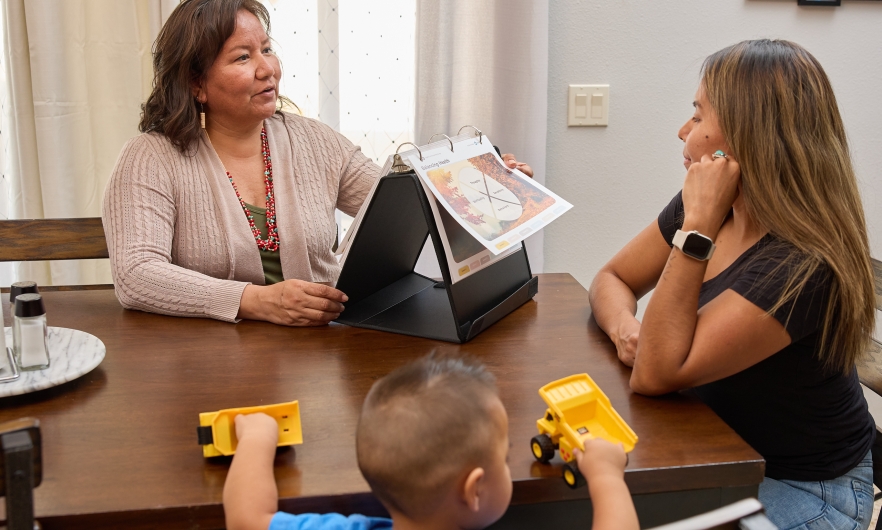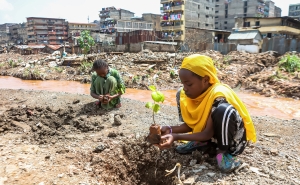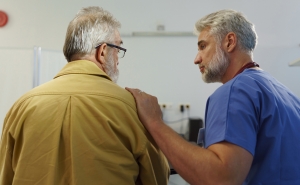Strengthening Generations: How Family Spirit Strengths Is Transforming Mental Health Support in Tribal Communities

Across Tribal communities in the United States—where cultural traditions are strong and health disparities persist—transformative change is unfolding. Quietly, compassionately, and within the heart of the home, Family Spirit Strengths is redefining how mental health and substance use support reaches Native families. Rooted in cultural connection and community leadership, this initiative is not just a program but a movement toward healing that feels personal, trusted, and enduring.
What Is Family Spirit Strengths?
Family Spirit Strengths is a five-year clinical trial led by a dedicated team from the Johns Hopkins Center for Indigenous Health and Department of Mental Health—Lisa Martin, Leonela Nelson, Dr. Emily E. Haroz, and Stephanie Skavenski Van Wyk. Funded by the National Institute on Drug Abuse, the project integrates mental health care into existing home visiting programs for Native families, bringing support directly to the places where families live, grow, and heal.
The approach is based on a culturally adapted version of the Common Elements Treatment Approach (CETA) and carefully tailored for Tribal communities. Yet beyond the clinical terminology lies something much more human: a vision for healing rooted in connection, culture, and compassionate care.
A Community-Driven Beginning
The idea for Family Spirit Strengths was sparked in 2019, when a public health team at an Indian Health Service clinic shared a pressing concern. While home visiting programs were doing meaningful work in early childhood development, families were also facing serious challenges related to mental health and substance use, which needed more support.
This was not an isolated observation. Similar feedback echoed across the national Family Spirit(R) network—an evidence-based home visiting program developed by and for Native communities.
In response, the Center for Indigenous Health launched a deep phase of community engagement. They listened to families, held roundtables, formed an Indigenous-led expert advisory board, and collaborated closely with the CETA team. Together, they adapted the model to reflect Indigenous values, language, and lived experience.
Pilot testing followed in Tribal communities in Arizona and Michigan, and incorporated feedback from local families and home visitors. With those insights, the program was further refined, and the NIH-funded clinical trial officially began.
This marks a historic milestone as the first clinical mental health program integrated directly into a home visiting model.
Grounded in Relationships and Culture
Family Spirit Strengths builds on more than four decades of partnership between the Center for Indigenous Health and Tribal communities across the country. It is an evolution of the original Family Spirit program: the first and only evidence-based home visiting model designed by and for Native families.
Rather than referring families to distant or culturally disconnected mental health providers, the program trains Indigenous paraprofessionals to provide support directly. These home visitors bring lived experience, empathy, practical tools, and a shared cultural understanding, creating a space where families feel seen, supported, and empowered.
Real Stories, Real Impact
While the clinical trial is still ongoing, early stories from the field highlight the program’s meaningful impact.
One home visitor shared the story of a mother who had recently moved to a new community. Isolated at home with her children, she was struggling emotionally despite having a supportive partner.
“Talking to someone who understood where she came from was a relief to her,” the home visitor said. “She began opening up—about her feelings, her spirituality. She started using tools like the ‘Thinking in a Different Way’ worksheet to shift her mindset. She told me she wants to break the silence around mental health in her family.”
Stories like these demonstrate the quiet, yet powerful, ways Family Spirit Strengths is making a difference.
Supporting Those Who Support
The emotional labor of this work is significant. Home visitors often carry the weight of the challenges their clients face. Recognizing this, the program also includes strong support systems for its workforce, such as clinical supervision, cultural leave, and ongoing opportunities to work with traditional healers and teachers.
“We believe that to support healing in others, we must care for those doing the healing,” the leadership team explained. “This is about respecting the work and the people behind it.”
Looking Ahead
With two years remaining in the trial, the team is focused on completing recruitment and evaluating outcomes. But the broader vision is already taking shape. Family Spirit Strengths is more than a research study; it is a model for how clinical science and Indigenous knowledge can come together to build systems of care that are holistic, sustainable, and deeply human.
In a world where mental health care can feel out of reach or out of touch, this program is offering a new way forward: one grounded in culture, compassion, and community.





